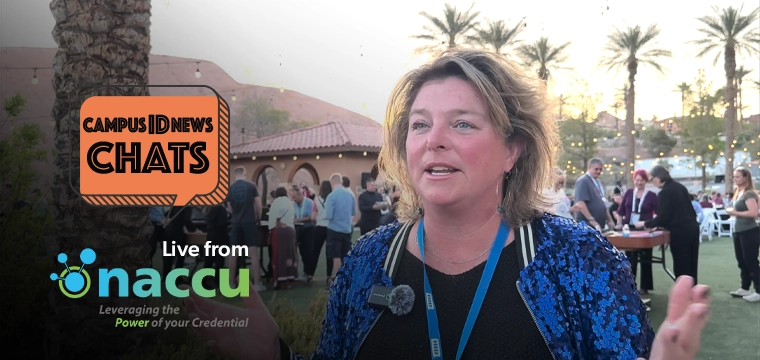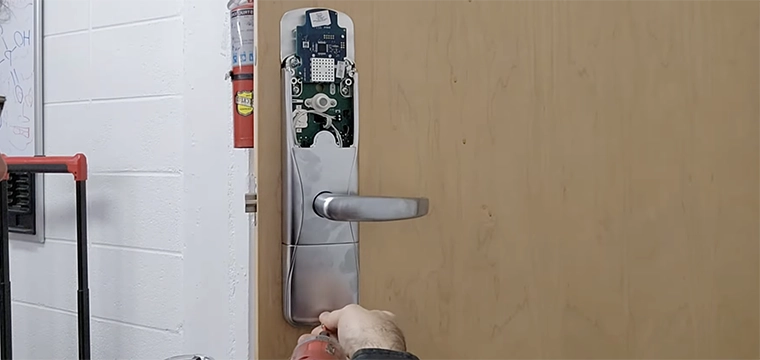By Lyn White, Campus Card and Marketing Consultant, White Consulting
YOU DO! You have taken a lot of time to determine that your campus could benefit from a campus card program. You have slaved over the RFP and agonized over the responses from the vendors. You have sat through the presentations by the finalists and chosen the best fit for your campus. Now is not the time to sit back and just let it happen. If you want the best campus card program to emerge from this arduous process, then you need to finish the job – which means hiring and training the best personnel and making sure you provide them with a recipe for success. Which is a card office manual with every possible eventuality covered – including a disaster plan.
You know as well as I do, that the students and faculty will push you as far as possible to get what they want. How do you keep this from happening? Have a very comprehensive policies and procedures manual. Your employees have a right to know what is expected of them and the customers have a right to be treated fairly and consistently at all times.
If your card office is like most on a campus, you will be staffed with work-study students whose schedule may change and you will have to train new help. The image of your campus card program begins with the card office; what it looks like, how the help is dressed, how they answer the phone, the level of customer service provided, the consistency of how challenges and questions are handled and attitude evoked. How do you meet and exceed the above challenges? Have it all down in black and white and empower your employees to make decisions when the manual does not cover the situation.
Before you can write your Card Office Manual, you need to define what your card office will be to the campus and to your campus card program. What types of services will be offered to your customers, what types of duties will be performed and who will do them, how many people will it take to get everything done right and in a timely fashion, what other responsibilities will your personnel have – such as marketing the card on and off campus, brochure design, ordering card stock, ribbons, brochures printed.
Opening procedures is a good place to begin your Policies and Procedures Manual. Keep in mind that you probably will have at least one person who is well versed in all aspects of your campus card office, but what happens when that person is sick or on vacation? The back-up person may not open often, and should have a written list of what to do when opening for the day. This ensures nothing has been missed and takes the stress off the back-up person. Make sure someone who has never performed the opening procedures takes a look at your manual. It is sometimes hard to write since you are so used to doing something, it is easy to forget to include it. Don’t forget to list such simple things such as:
Another procedure you may wish to have is a Student Staff Dress Code and Demeanor Code. You want to have a professional looking office and that would include student staff that looks presentable. You and I know that what you consider presentable and what a student deems presentable are very different things. When interviewing them, you will need to make sure they understand your policies – such as no cutoffs, no bare feet, no bare midriffs, no t-shirts with explicit messages, no torn clothing … and clean clothing. If you have this written out and have them sign it, when they show up in inappropriate clothing, it is simple to send them home to change. When they lose money, by not being on the clock, it won’t take them long to come in the appropriate clothing.
You should also list the times an employee may be asked to wear designated card shirts which will be supplied by the office. Other things may be included in this procedure such beverage containers must always have a lid and beverages must never be places on top of a computer, computer equipment and printer equipment. Delineate their work hours, and let them know that they will have a 15-minute break every four hours and if they are working an 8-hour shift, that a lunch break must be taken. Let them know when time cards are processed and that they need to complete their time card daily when their shift is over. Let them know that the pay period dates and when paychecks are issued. If you need to have the time card signed in ink, indicate this also.
Another procedure would be Answering Phones and how you expect messages to be taken. Dialog such as: Good Morning (afternoon), Campus Card Office. This is __, how may I help you. By each phone should be a FAQ sheet that can be referred to when answering standard questions. If the person answering the phone cannot answer the question, have a list of who is responsible for what so they can refer the question to them. Give them dialog on how to handle this. Such as, I am sorry I cannot answer your question, would you please wait while I find the answer or connect you with someone who can help you? If no one in the office can answer the questions, say you will find out the answer and call them back – give them a time frame, take the name and number of the person needing the information. Return the call within the allotted time frame even if you do not yet have an answer, then give them another time frame or the name and number of the person who can answer the question. Phone calls should never be transferred out of the office until all resources within the office have been exhausted. In taking messages, make sure they have a list of the information they should take down. Such as, name of the person responsible for returning the call, name of the caller, who the caller is associated with, phone number of the caller, date and time of the call, any information regarding the call and have them initial the message.
Problem Solving is another procedure that should be delineated. What are some of the anticipated problems that could be encountered and who would be responsible for handling them, and/or write our how to problem solve such things as when the printer does this, how do you fix it. Computer problems, verification of status, and no identification are some of the situations that can be encountered. The depth of these written procedures is relative, depending on the quality and training of the staff and their ability to resolve the situation. These procedures may need to be modified depending on your quality of student help every semester.
The procedures for closing the office should be written also and don’t forget to cover emergency closing – such as who is the last one out and a count of personnel on duty after every one is out. Closing procedures include:
and match to the number of cards sold,
I have just given you a sample of what should be included in simple procedures. There are many more you will need to write and you will want to relook at these on a yearly basis to update where needed. Other policies and procedures you may want to implement include:
This is not an all inclusive list, every campus is individualized and will need to add to and delete from the above list.
Remember – this is your road map to a successfully run card office and campus card program. If you have a written procedure and can show it to someone who is trying to push the envelope, then it will be easier to make them understand you are not just being mean, but following university procedures.
Lyn White, Campus Card and Marketing Consultant
Campus Card program services from the beginning of looking at providing a card system for the campus through, RFP writing and evaluating, business plan, project management, card office manuals and marketing manuals, policies and procedures customizing, customized marketing plans. White will also come onto to campus which has had a card system for several years and evaluate the program and assist in designing the expansion of the system and list changes needed to ensure a successful growth of the expansion.
White developed the University of Florida Gator 1 Card program from scratch to 60,000 active card base, was first Executive Director of NACCU for 3 years and has had her own consulting business for 4 years. White at UF and with NACCU, White informally consulted with schools looking to implement a card program or expand an existing one.
By Lyn White, Campus Card and Marketing Consultant
White Consulting
2631 NW 47 Avenue
Gainesville, FL 32605
352.384.2642
Email:[email protected]
Website: www.campusonecard.com




